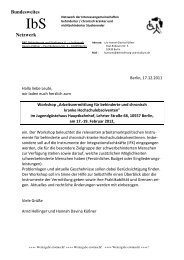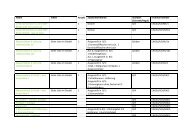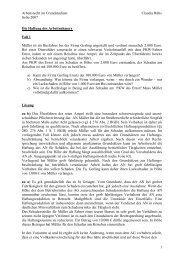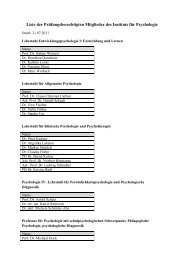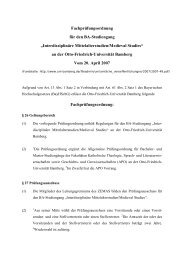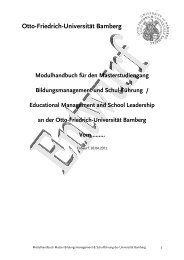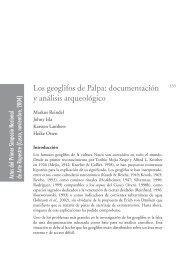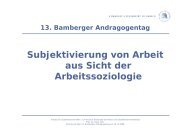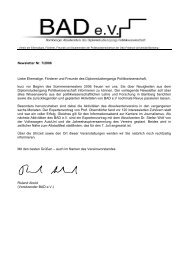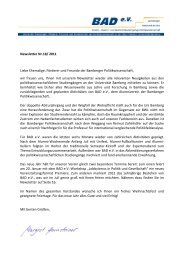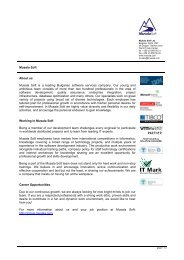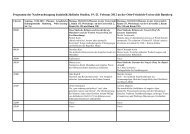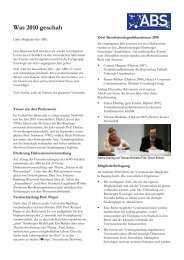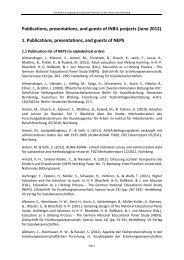Fachgruppe für Methoden und Evaluation - Universität Bamberg
Fachgruppe für Methoden und Evaluation - Universität Bamberg
Fachgruppe für Methoden und Evaluation - Universität Bamberg
Erfolgreiche ePaper selbst erstellen
Machen Sie aus Ihren PDF Publikationen ein blätterbares Flipbook mit unserer einzigartigen Google optimierten e-Paper Software.
Fr., 23.09., Mediationsanalysen, 16.10-16.30 Uhr, Hörsaal M3/232N (H)<br />
Identification of mediator variables in randomized longitudinal trials<br />
Holger Brandt<br />
Andreas Klein<br />
Abteilung <strong>für</strong> Psychologische<br />
<strong>Methoden</strong>lehre<br />
<strong>Evaluation</strong> <strong>und</strong> Forschungsmethodik<br />
Goethe-<br />
<strong>Universität</strong> Frankfurt<br />
Mertonstr. 17<br />
60054 Frankfurt<br />
brandt@psy.uni-frankfurt.de<br />
In intervention studies concerning treatment efficacy the interest<br />
in mediator variables has been increasing. Mediator<br />
variables are variables which act between an intervention<br />
and an outcome variable and which are intended to capture<br />
the effect of the intervention on the outcome. The knowledge<br />
about mediator variables enhances the <strong>und</strong>erstanding<br />
of the mechanisms transmitting the effect of the intervention.<br />
Different approaches have been suggested in order<br />
to identify potential mediator variables, which have in<br />
common that they condition on the mediator variable in order<br />
to quantify the mediated effect (e.g. Baron & Kenny,<br />
1986; Prentice, 1989). However, serious concerns about<br />
this type of methodology have been raised in the more recent<br />
statistical literature.<br />
In this paper, we explain in more detail what steps might be<br />
taken to modify the conventional approach, and we propose<br />
a method that helps to reduce the bias for the estimation<br />
of the mediated effect, when the data structure meets<br />
specific requirements. The differences between the conventional<br />
and the proposed method are exemplified by a<br />
small simulation study and an empirical example. The results<br />
indicate that in real-world situations the conventional<br />
mediator model mostly leads to a strongly biased estimation<br />
of the mediated effect. In comparison, the proposed<br />
method leads to a reduced bias.<br />
Baron, R. M. & Kenny, D. A. (1986). The moderator-mediator<br />
variable distinction in social psychological research:<br />
Conceptual, strategic, and statistical considerations. Journal of<br />
Personality and Social Psychology, 51, 1173-1182.<br />
Prentice, R. L. (1989). Surrogate endpoints in clinical trials:<br />
Definition and operational criteria. Statistics in Medicine, 8,<br />
431-440.<br />
87



